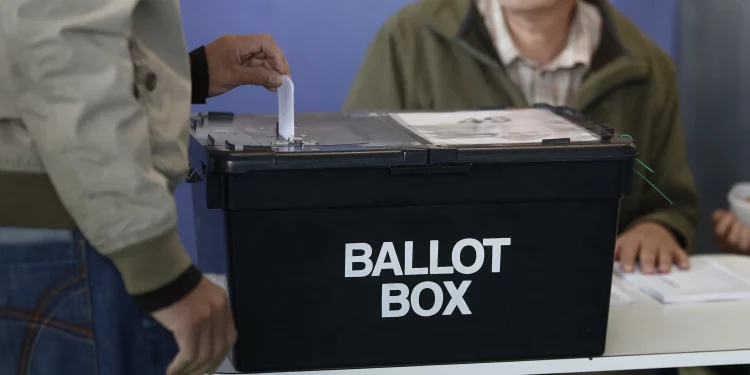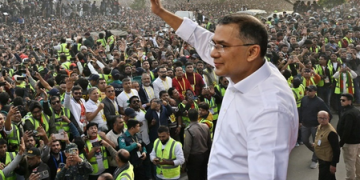It has long been held that when one is young, one tends to subscribe to pro-poor and people-oriented progressive politics, which are now being labelled in a blanket manner as Left-wing politics, while some argue that with age, they cease to look at political reality with the prism of Left ideology. Such a tendency is ascribed to the belief that the youth react more with their heart – emotions – than their brain – reason- and maturity with the passage of time makes an individual more balanced and rely less on emotions. Political scientists and psychologists are yet to come to a definite conclusion on the issue, even as Far-Right politicians in the West are now swaying the youth with their extreme and intolerant political credo and agenda. It is interesting that against this backdrop, the UK government, run by the Labour Party, has announced that it will lower the voting age from 18 to 16. The Labour Party administration says it is part of a package of changes to strengthen British democracy and help restore trust in politics. But, the Far-Right opposition party, persuaded by the belief that a young mind tilts towards the Left, has lambasted the government decision, accusing the Labour Party of trying to consolidate its support base with the participation of school students in the country’s general elections.
Experts say the phenomenon of young voters is complicated, with mixed evidence about how lowering the voting age affects democracy and election outcomes. Britain’s voting age last fell in 1969, when the UK became one of the first major democracies to lower it from 21 to 18. Many other countries, including the United States, followed suit within a few years. Now the government says it will lower the threshold to 16 by the time the next general election is held, likely in 2029. That will bring the whole country into line with Scotland and Wales, which have semi-autonomous governments and already let 16 and 17-year-olds vote in local and regional elections.
A few other countries currently have a voting age of 16. These include Austria, Brazil and Ecuador. Some European Union countries, including Belgium, Germany and Malta, allow 16-year-olds to vote in elections to the European Parliament. The advocates of lowering the voting age to 16 are correct in emphasizing that if 16-year-olds in Britain can work and pay taxes, there should not be any bar to making them eligible to vote. In fact, Prime Minister Keir Starmer argued on the same line and said, “If you pay in, you should have the opportunity to say what you want your money spent on,” meaning the 16-year-olds, since they could be taxpayers, should enjoy the voting right. Quite rightly, pro-democracy organizations welcomed the lower age, and a move toward automatic voter registration, saying it would help increase voting rates. Turnout in the 2024 election was 59.7 per cent, the lowest level in more than two decades. The age change is part of a package of electoral reforms that includes tightening campaign financing rules and broadening the range of documents that can be used as identification at polling stations.
Also Read: Tripura’s IAS Exodus
Certainly, the lowering of age will increase democratic participation by getting teenagers into the habit of voting at a time when most are still in school. The only thing, probably, that can be said against the decision is that school students being given the right to vote may not have the political maturity to choose the party that will rule the destiny of the nation. On the other hand, young citizens across the world today are perceived as being much more aware and alert in comparison to the same-aged people even a decade or two ago. One more argument against the measure is that in the age of social media when all sorts of good and pernicious ideas are peddled online, 16-year-olds may be manipulated for their credulity and gullibility. However, social scientists advance the theory that younger people, who are in full-time education and often still live at home, can make for better, more engaged first-time voters compared with 18- to 20-year-olds, who often experience their first election in a highly transitory phase of their lives. The government’s political opponents on the Right argue that Labour hopes to benefit from 1.5 million new potential young voters who generally lean to the Left. Nigel Farage, leader of the Far-Right party Reform UK, said Labour was trying to “rig the system.” The 16-year-olds in the UK account for a small percentage of British voters, and their apologists say they are in no position to greatly influence the formation of a government. However, in cases of narrow victory margin, they may prove to be the decisive factor. This move should be considered a good sign as very young minds must have a say in the process of democracy.






































